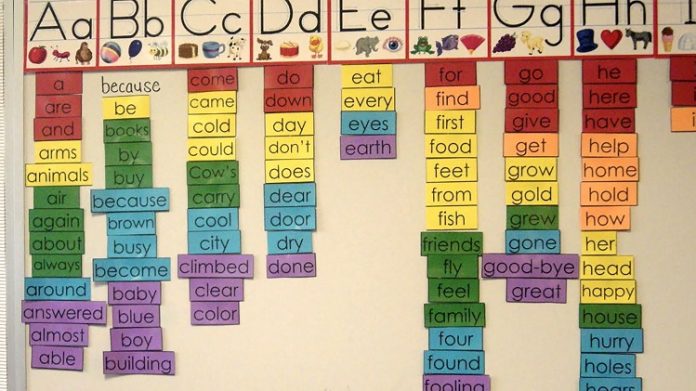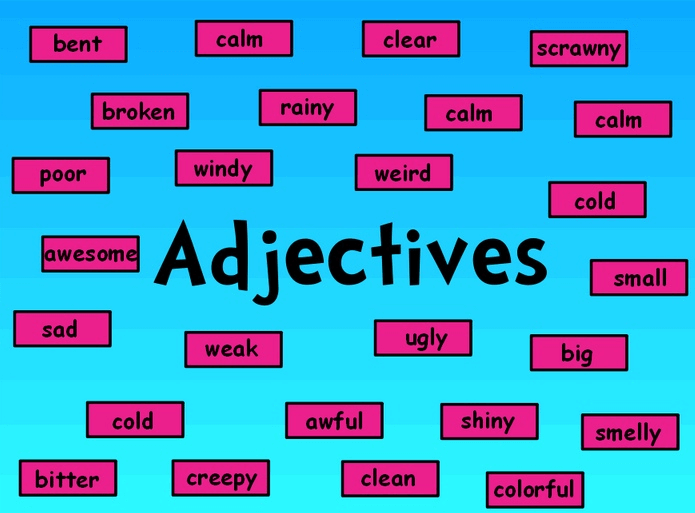Tiếng Anh có hiện tượng chuyển đổi từ từ loại này sang loại khác, ví dụ như từ động từ sang danh từ, từ danh từ sang tính từ,… Nếu hiểu được cách thức chuyển đổi của từ thì đây là một phương pháp vô cùng hữu hiệu để học từ vựng. Muốn biết rõ hơn thì theo dõi bảng Cách biến đổi từ loại trong Tiếng Anh nhé!

Trước hết hãy tìm hiểu về các hậu tố của 8 từ loại nhé.
1. Cách nhận biết theo đuôi của danh từ, động từ, tính từ và trạng từ trong tiếng Anh
1.1. Noun endings (Dấu hiệu nhận biết danh từ)
| Noun Endings | Examples |
| 1. – ism | criticism, heroism, patriotism |
| 2. – nce | importance, significance, dependence, resistance |
| 3. – ness | bitterness, darkness, hardness |
| 4. – ion | pollution, suggestion, action |
| 5. – ment | accomplishment, commencement, enhancement, excitement |
| 6- —(i)ty | purity, authority, majority, superiority, humidity, cruelty, honesty, plenty, safety |
| 7. – age | baggage, carriage, damage, language, luggage, marriage, passage |
| 8. – ship | citizenship, fellowship, scholarship, friendship, hardship |
| 9. – th | bath, birth, death, growth, health, length, strength, truth, depth, breadth, wealth |
| 10. – dom | freedom, kingdom, wisdom |
| 11. – hood | childhood, brotherhood, neighborhood, likelihood |
| 12. – ure | closure, legislature, nature, failure, pleasure |
| 13. – cy | bankruptcy, democracy, accuracy, expectancy, efficiency |
| 14. —(t)ry | rivalry, ancestry, carpentry, machinery, scenery, bravery |
| 15. – logy | archaeology, geology, sociology, zoology |
| 16. – graphy | bibliography, biography |
| 17. – or | actor, creator, doctor, tailor, visitor, bachelor |
| 18. – er | northerner, villager, airliner, sorcerer |
| 19. – ee | employee, payee, absentee, refugee |
| 20. – ist | economist, dentist, pianist, optimist, perfectionist |
| 21. – ician | magician, physician, musician, electrician, beautician |
| 22. – ant | assistant, accountant, consultant, contestant, inhabitant |
 Tính từ
Tính từ
| Adj endings | Examples |
| l. – ent | independent, sufficient, absent, ancient, apparent, ardent |
| 2. – ant | arrogant, expectant, important, significant, abundant, ignorant, brilliant |
| 3. – ful | beautiful, graceful, powerful, grateful, forgetful, doubtful |
| 4. – less | doubtless, fearless, powerless, countless, careless, helpless |
| 5. – ic | civic, classic, historic, artistic, economic |
| 6. – ive | authoritative, demonstrative, passive, comparative, possessive, native |
| 7. – ous | dangerous, glorious, murderous, viscous, ferocious, hilarious |
| 8. – able | charitable, separable, bearable, reliable, comfortable, suitable |
| 9. – ible | audible, edible, horrible, terrible |
| 10. – al | central, general, oral, tropical, economical |
| ll. – ory | mandatory, compulsory, predatory, satisfactory |
| 12. – ary | arbitrary, budgetary, contrary, primary, temporary, necessary |
| 13. – y | angry, happy, icy, messy, milky, tidy, chilly, slippery, rainy |
| 14. – ly | friendly, lovely, lively, daily, manly, beastly, cowardly, queenly, rascally |
| 15. – ate | temperate, accurate, considerate, immediate, literate |
| 16. – ish | foolish, childish, bookish, feverish, reddish |
2.3. Verb endings (Dấu hiệu nhận biết động từ)
 Động từ trong tiếng Anh
Động từ trong tiếng Anh
| Verb endings | Examples |
| l. – en/en- | listen, happen, strengthen, lengthen, shorten, soften, widen, entrust, enslave, enlarge, encourage, enable, enrich |
| 2. – ate | assassinate, associate, fascinate, separate, vaccinate, evacuate |
| 3. – ize | idolize, apologize, sympathize, authorize, fertilize |
| 4. – ify | satisfy, solidify, horrify |
2.4. Adverb endings (Dấu hiệu nhận biết trạng từ)
Trạng từ trong tiếng Anh
| Adverb endings | Examples |
| l. – ly | firstly, fully, greatly, happily, hourly |
| 2. – wise | otherwise, clockwise |
| 3. – ward | backward, inward, onward, eastward |
2. Cách thành lập danh từ
1.1 Thành lập danh từ bằng cách thêm hậu tố vào sau động từ
| Cách thành lập | Ví dụ |
| Verb + -tion/-ation | prevent => prevention introduce => introduction invent => invention conserve => conservation admire => admiration |
| Verb + -ment | develop => development achieve => achievement employ => emloyment disappoint => disappointment improve => improvement |
| Verb + -er/-or | drive => driver teach => teacher edit => editor instruct => instructor dry => dryer cook => cooker |
| Verb + -ar/-ant/-ee | beg => beggar assist => assitant examine => examinee lie => liar employ => employee |
| Verb + -ence/-ance | exist => existance differ => difference attend => attendance appear => appearance |
| Verb + -ing | teach => teaching build => building understand => understanding |
| Verb + age | use => usage drain => drainage |
Ví dụ: Cho dạng đúng của các từ trong ngoặc để điền vào chỗ trống
Detroit is renowned for the _____ production_____ of cars. (produce)
Trong câu có mạo từ xác định “the” nên cần điền một danh từ
Đáp án là: production
Dịch: Detroit rất nổi tiếng về việc sản xuất ô tô.
1.2 Thành lập danh từ bằng cách thêm hậu tố vào tính từ
| Cách thành lập | Ví dụ |
| Adjective + -ity | possible => possibility real => reality national => nationality special => speciality |
| Adjective + -ism | racial => racialism common => communism social => socialism feudal => feudalism surreal => surrealism |
| Adjective + -ness | rich => richness happy => happiness sad => sadness willing => willingness |
2. Cách thành lập tính từ
2.1 Thành lập tính từ đơn từ danh từ
| Cách thành lập | Ví dụ |
| Noun + -y | rain => rainy wind => windy sun => sunny |
| Noun + -ly | day => daily man => manly friend => friendly |
| Noun + -ful | care => careful beauty => beautiful harm => harmful |
| Noun + -less | care => careless harm => harmless home => homeless |
| Noun + en | gold => golden wool => woolen wood => wooden |
| Noun + ish | book => bookish girl => girlish child => childish |
| Noun + ous | humour => humourous danger => dangerous |
2.2 Thành lập tính từ ghép từ danh từ
| Cách thành lập | Ví dụ |
| Noun + adjective | a snow-white face the oil-rich country |
| Noun + participle | a horse-drawn cart a heart-breaking story |
| Noun + noun-ed | a tile-roofed house |
3. Cách thành lập trạng từ
Công thức: Adj + ly = Adv
Ex: quick → quickly
slow → slowly
beautiful → beautifully
final → finally
immediate → immediately
Lưu ý:
- các tính từ tận cùng bằng able/ible thì bỏ e ở cuối và thêm y:
Ex: capable → capably
probable → probably
possible → possibly
- âm cuối y đổi thành i:
Ex: happy → happily
easy → easily
lucky → luckily
Những trường hợp ngoại lệ:
- Friendly (adj): là tính từ và không có hình thức trạng từ. Để có trạng từ tương tự, ta có thể dùng cụm trạng từ in a friendly way.
Ex: He is friendly.
He greeted me in a friendly way.
- Hard vừa là tính từ vừa là trạng từ:
Ex: The exercise is pretty hard. (hard = difficult).
She works hard. (hard: adv) = She is a hard-working worker. (hard: adj)
- Late: vừa là tính từ vừa là trạng từ:
Ex: He was late. (adj)
He came late. (adv)
- Một số từ khác vừa là adj, vừa là adv: early, well, fast, high
Ex: – I’m very well today. (adj)
She learns very well. (adv)
– This table is high. (adj)
The plane flies high.
– early train (adj)/get up early (adv)
- highly cũng là trạng từ nhưng nghĩa khác với high (adv).
Ex: The plane flies high.
He is highly paid. = He is a highly-paid employee
4. Một số trường hợp ngoại lệ
| Friendly | là tính từ không có hình thức trạng từ. Để có trạng từ tương tự, ta có thể dùng cụm trạng từ in a friendly way | Ví dụ:
|
| Late | vừa là tính từ vừa là trạng từ | Ví dụ:
|
| Hard | vừa là tính từ vừa là trạng từ | Ví dụ:
|
Mong rằng bài viết đã cung cấp thông tin đầy đủ về cách chuyển đổi từ loại trong tiếng Anh, giúp việc học của bạn hiệu quả hơn.

 Tính từ
Tính từ Động từ trong tiếng Anh
Động từ trong tiếng Anh